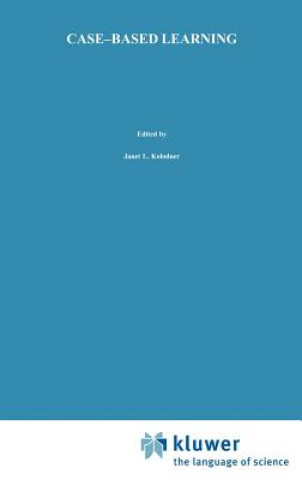
Doručení
Nákupní rádce





Nehodí se? Vůbec nevadí! U nás můžete do 30 dní vrátit
 Dárkový poukaz
V libovolné hodnotě
Dárkový poukaz
V libovolné hodnotě
S dárkovým poukazem nešlápnete vedle. Obdarovaný si za dárkový poukaz může vybrat cokoliv z naší nabídky.
Case-Based Learning
 Angličtina
Angličtina
 658 b
658 b
30 dní na vrácení zboží
Mohlo by vás také zajímat


Case-based reasoning means reasoning based on remembering previous experiences. A reasoner using old experiences (cases) might use those cases to suggest solutions to problems, to point out potential problems with a solution being computed, to interpret a new situation and make predictions about what might happen, or to create arguments justifying some conclusion. A case-based reasoner solves new problems by remembering old situations and adapting their solutions. It interprets new situations by remembering old similar situations and comparing and contrasting the new one to old ones to see where it fits best. Case-based reasoning combines reasoning with learning. It spans the whole reasoning cycle. A situation is experienced. Old situations are used to understand it. Old situations are used to solve a problem (if there is one to be solved). Then the new situation is inserted into memory alongside the cases it used for reasoning, to be used another time.§The key to this reasoning method, then, is remembering. Remembering has two parts: integrating cases or experiences into memory when they happen and recalling them in appropriate situations later on. The case-based reasoning community calls this related set of issues the indexing problem. In broad terms, it means finding in memory the experience closest to a new situation. In narrower terms, it can be described as a two-part problem: assigning indexes or labels to experiences when they are put into memory that describe the situations to which they are applicable, so that they can be recalled later; and at recall time, elaborating the new situation in enough detail so that the indexes it would have if it were in the memory are identified. Case-Based Learning is an edited volume of original research comprising invited contributions by leading workers. This work has also been published as a special issues of MACHINE LEARNING, Volume 10, No. 3.
Informace o knize
 Angličtina
Angličtina
Kategorie




 Jak nakupovat
Jak nakupovat






















